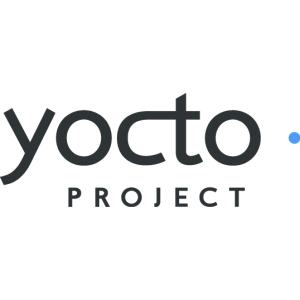Yocto Start Here: Difference between revisions
From Variscite Wiki
| Line 37: | Line 37: | ||
** [[{{#var:HARDWARE_NAME}} Ethernet|Ethernet]] | ** [[{{#var:HARDWARE_NAME}} Ethernet|Ethernet]] | ||
** [[{{#var:HARDWARE_NAME}} Audio record play|Audio record/play]] | ** [[{{#var:HARDWARE_NAME}} Audio record play|Audio record/play]] | ||
** [[IMX | ** [[IMX CAN bus|CAN-bus]] | ||
** [[{{#var:HARDWARE_NAME}} USB Host|USB Host]] | ** [[{{#var:HARDWARE_NAME}} USB Host|USB Host]] | ||
** [[{{#var:HARDWARE_NAME}} eMMC|eMMC]] | ** [[{{#var:HARDWARE_NAME}} eMMC|eMMC]] | ||
Revision as of 17:36, 11 May 2017
-First Time? Start Here.
Step One: Read Documentations
Please download and read the development kit documentation on Variscite website
NOTE:
Make sure you read the Quick Start Guide.
Make sure you read the Quick Start Guide.
Step Two: Setup Linux host PC Development Environment
Set up your development environment.
Step Three: Evaluation Kit Power Up
Power up the board.
You should have the serial cable connected to the debug port, as describe in the quick start guide
When board boots, make sure you see the u-boot prints on your host PC hyper terminal. You will need to type-in commands in the command prompt late in the development stages
IMPORTANT:
Don't continue without the serial console operating.
Don't continue without the serial console operating.
Step Four: A quick test with recovery SD-Card
Please follow the below guide to boot Evaluation Kit with a bootable SD-Card, and burn a complete Yocto into SOMs storage (NAND/eMMC)
Step Five: What next?
Your next step can be one of :
- Build a complete Yocto.
This guide will help you build a complete Yocto build, resulting in all required binaries to create a full bootable Yocto SD-Card, and all required binaries to burn to SOM's storage NAND Flash or eMMC.
- Use your pre-built rescue recovery SD-Card, as-is, to boot system, and start applications programming.
- Test various interfaces.
- Contact Support
- Variscite Customer Portal
Register at Variscite Customer Portal to get high quality engineering support for Variscite products - Support forum
- Variscite Customer Portal
